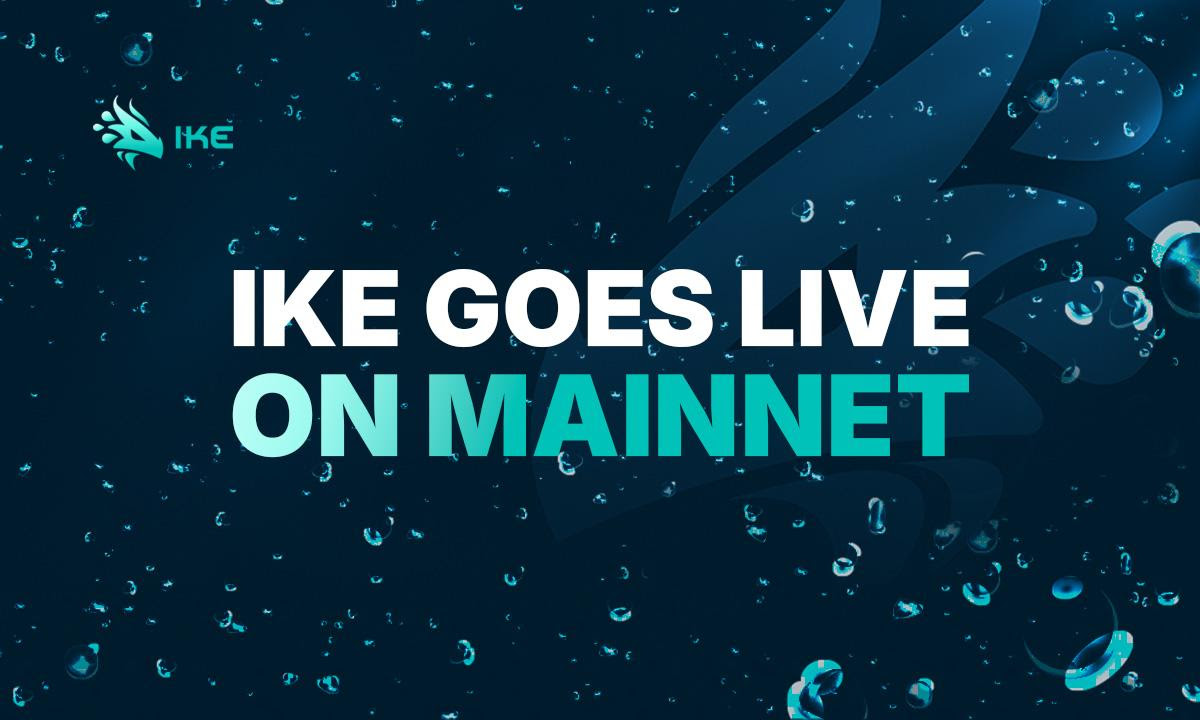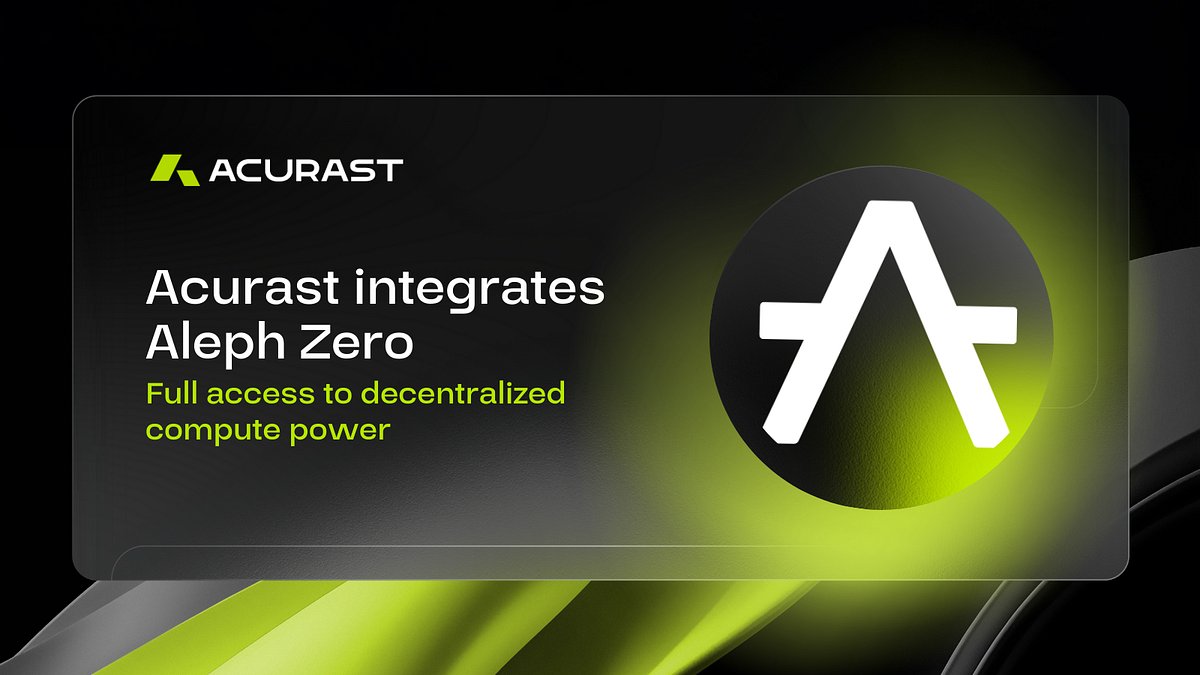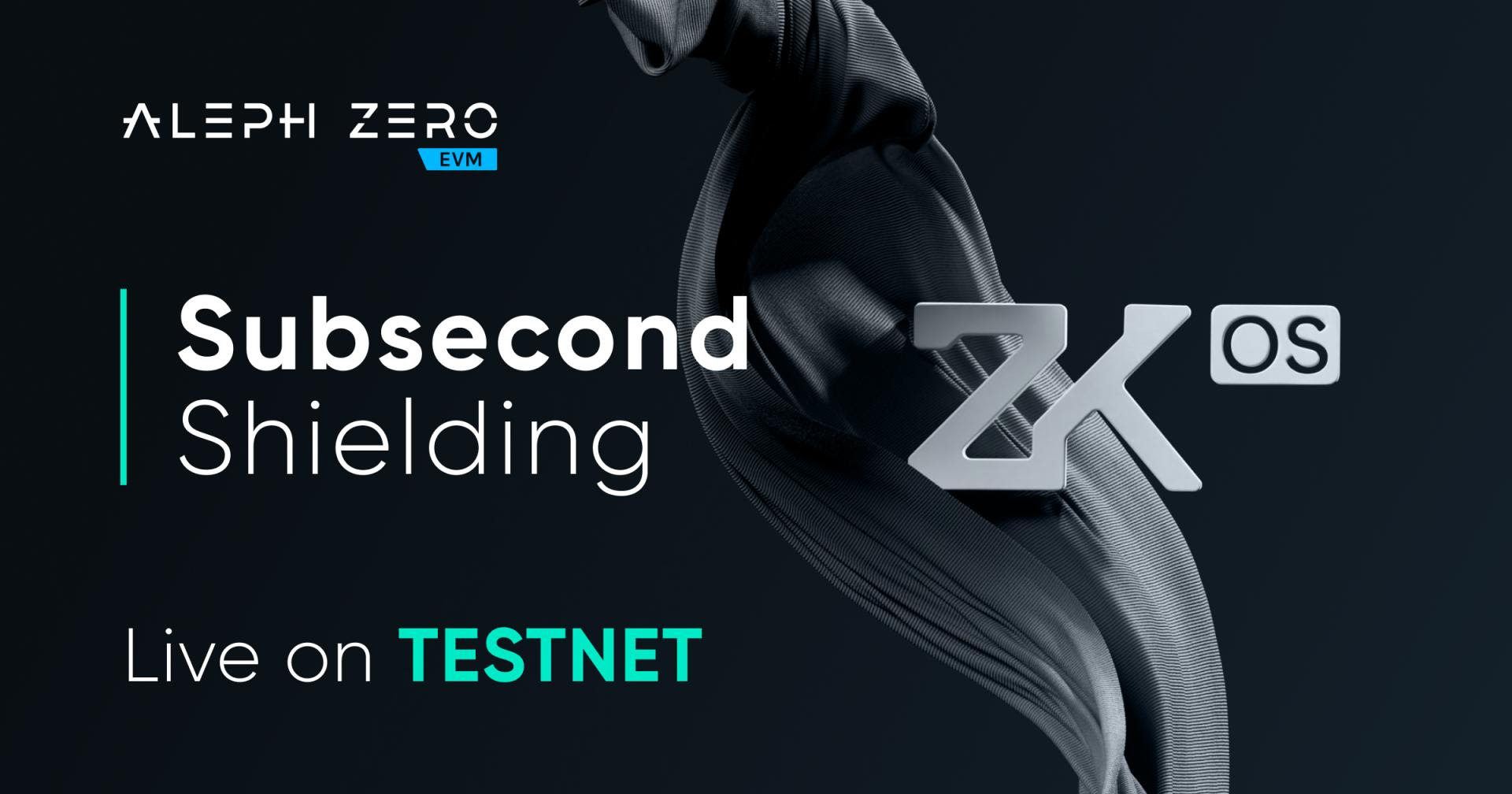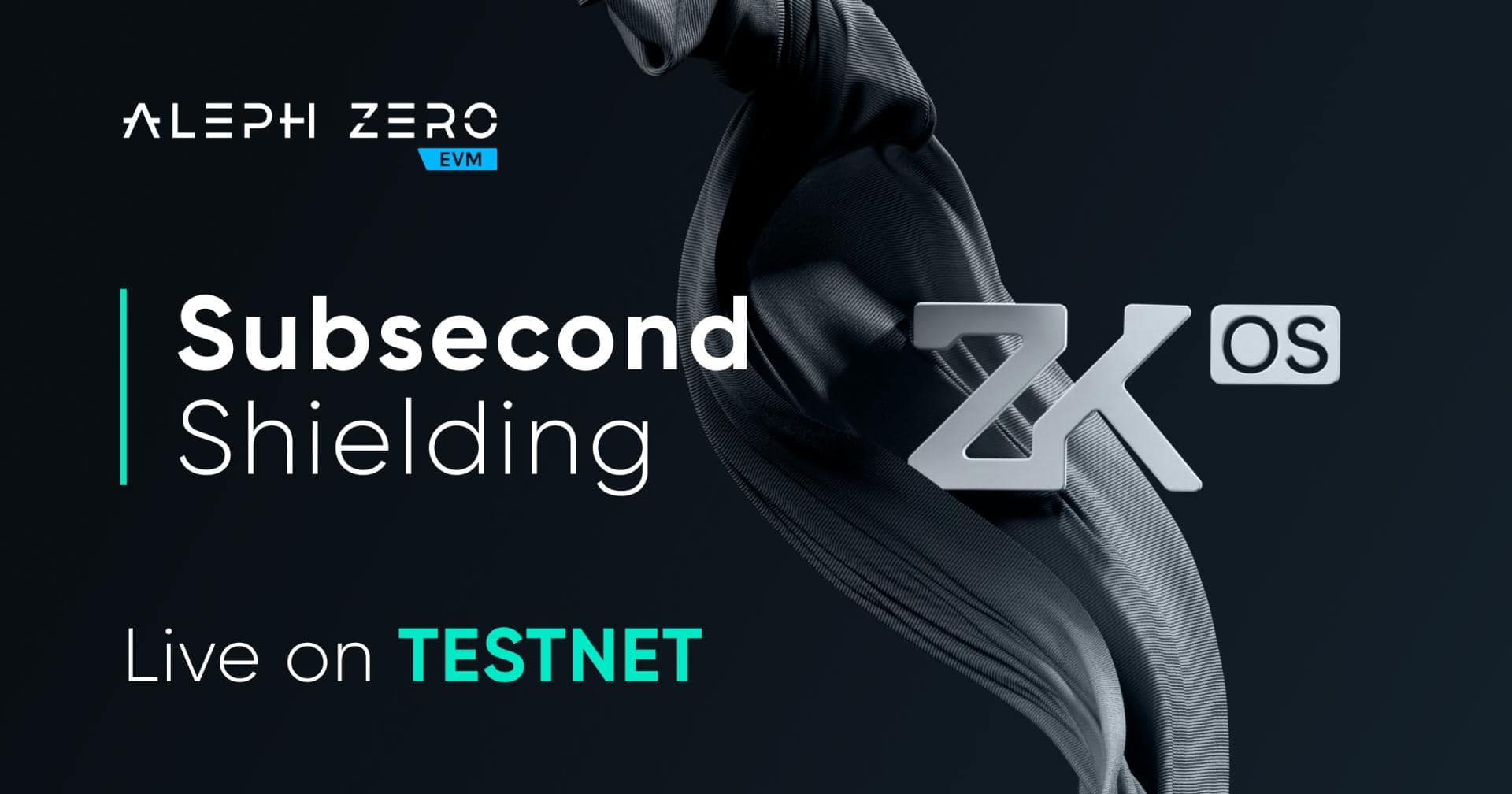Latest Aleph News

4 days ago
Ike Launches Liquid Staking Token sA0 on Aleph Zero Mainnet
Ike, a composable liquid staking protocol, has officially launched its Liquid Staking Token (LST), sA0, on the Aleph Zero mainnet. This launch represents a significant milestone for both Ike and Aleph Zero, a layer 1 blockchain known for its privacy features, scalability, and low transaction fees. The introduction of sA0 allows users to engage with the Aleph Zero network more flexibly, enabling them to stake their AZERO tokens while maintaining liquidity and earning rewards. This innovative approach aims to enhance the overall staking experience for users within the Aleph Zero ecosystem.
The sA0 token not only provides liquidity for stakers but also integrates seamlessly with Aleph Zero's expanding DeFi ecosystem. This integration enhances the utility and value of sA0, encouraging more users to participate in staking, which in turn supports the network's security and resilience. By allowing users to receive sA0 tokens in exchange for their staked AZERO, the protocol ensures that users can remain liquid while still benefiting from staking rewards. This dual advantage is expected to attract a wider audience to the Aleph Zero platform.
Stephen Novenstern, the Founder of Ike, expressed his enthusiasm regarding the mainnet launch, highlighting the importance of community involvement in the governance of the protocol. He emphasized that the launch of sA0 is just the beginning of Ike's commitment to creating a decentralized and community-driven ecosystem. Looking ahead, Ike plans to expand the utility of sA0 and introduce governance features that empower the Aleph Zero community to shape the future of the platform, marking a promising development in the realm of liquid staking protocols.

4 days ago
Ike Launches Liquid Staking Token sA0 on Aleph Zero
Ike has officially launched its Liquid Staking Token (LST), sA0, on the Aleph Zero network, marking a significant milestone for both the project and its community. This innovative token allows users to stake their AZERO tokens while maintaining liquidity, enabling them to earn rewards without locking up their assets. The introduction of sA0 not only enhances the staking experience but also opens up new opportunities for participation within Aleph Zero’s expanding ecosystem. Users can now engage in staking and utilize their sA0 tokens simultaneously, promoting a more dynamic interaction with the network.
The benefits of sA0 are manifold. Firstly, it provides liquidity alongside rewards, as users receive sA0 tokens in exchange for their staked AZERO, allowing them to remain active in the ecosystem. Additionally, sA0 integrates smoothly with Aleph Zero’s DeFi landscape, enhancing the utility and value for stakers. Furthermore, by incentivizing more users to participate in staking, sA0 contributes to the overall security and resilience of the Aleph Zero network, fostering a robust environment for growth.
Ike's launch of sA0 is a crucial step towards progressive decentralization, with plans for community-driven governance features and a transparent validator registration process. The initial launch included seven validators, including notable partners like Deutsche Telekom and STC Bahrain. As the project evolves, Ike aims to empower the Aleph Zero community to shape its future through increased participation and governance. Founder Stephen Novenstern emphasized the importance of this launch, stating it is just the beginning of their commitment to building a decentralized, community-driven ecosystem that enhances network security and user experience.

a month ago
Acurast Integrates with Aleph Zero to Enhance Decentralized Computing
Acurast has successfully integrated with Aleph Zero, allowing developers within the Aleph Zero ecosystem to access Acurast's decentralized compute resources while earning rewards in AZERO. This collaboration significantly enhances scalability, privacy, and cost-effectiveness for developers, enabling them to utilize unstoppable compute power directly from Acurast. By leveraging Acurast's mobile-powered cloud, developers can deploy applications more quickly, securely, and at a fraction of the cost compared to traditional cloud providers. This integration aligns perfectly with Aleph Zero's privacy-first architecture, ensuring enhanced security and data protection for decentralized applications (dApps).
The integration has been hailed by key figures from both organizations. Alessandro De Carli, Co-Founder of Acurast, expressed excitement about the collaboration, emphasizing how it empowers developers to access scalable and confidential compute resources. He noted that this partnership marks a significant step toward reducing the reliance on centralized cloud providers, thus promoting the benefits of decentralization and privacy. Piotr Moczurad, Ecosystem Tech Lead of Aleph Zero, echoed these sentiments, stating that Acurast's decentralized cloud service is a perfect complement to Aleph Zero's focus on privacy, speed, and scalability. This collaboration aims to create an environment where Web3 developers can deploy and scale their applications without compromising security or performance.
Aleph Zero is recognized for its privacy-centric blockchain solutions that prioritize speed, data confidentiality, and ease of development. It utilizes zero-knowledge proofs to uphold rigorous data protection standards while providing a versatile toolset for Web3 development. With over 40 active use cases, Aleph Zero showcases its adaptability across various sectors. Acurast, on the other hand, transforms upcycled mobile devices into a decentralized cloud computing platform, offering a cost-effective and efficient alternative to traditional cloud models. Together, these two platforms are poised to revolutionize the landscape of decentralized computing and application development.

a month ago
Aleph Zero Launches zkOS: A New Era of Privacy in Blockchain
Aleph Zero has officially launched its client-focused zero-knowledge operating system, zkOS, aimed at enhancing user privacy and scalability within the blockchain ecosystem. The first feature introduced under zkOS is called Shielding, which is now available on the EVM Testnet. This innovative feature allows users to experience the speed and privacy capabilities of Aleph Zero's zero-knowledge proof (ZK) technology optimizations. The Shielding Demo serves as a testament to the company's commitment to developing practical privacy solutions tailored for the blockchain industry.
The zkOS operates by generating zero-knowledge proofs locally on the user's device, ensuring that sensitive data remains private and secure. This approach not only enhances user privacy but also maintains transaction speed, a critical factor in blockchain operations. Adam Gagol, Co-Founder & CTO of Aleph Zero, emphasized that the release of zkOS marks a significant advancement in addressing privacy challenges in blockchain technology. The Shielding Demo showcases how zkOS can effectively integrate privacy into decentralized finance (DeFi) without compromising on performance or usability.
Looking ahead, Aleph Zero has ambitious plans to further develop zkOS, making it more user-friendly and introducing additional privacy features such as ZK-ID and anonymity revokers to combat fraud. The platform is designed to be easily integrated by developers with minimal cryptographic knowledge, positioning zkOS as an essential tool for creating privacy-centric applications in DeFi and other web3 sectors. As the testnet continues to roll out, Aleph Zero is refining both Shielding and zkOS in preparation for its Mainnet deployment, allowing users who participate in the Shielding Demo to be whitelisted for upcoming zkOS Beta testing on Aleph Zero’s EVM Mainnet.

a month ago
Aleph Zero Launches Shielding Demo for zkOS on EVM Testnet
Aleph Zero, a prominent blockchain platform known for its emphasis on privacy and scalability, has announced the launch of its zero-knowledge operating system (zkOS) feature called Shielding on its EVM Testnet. This innovative technology allows zero-knowledge proofs to be generated directly on users' devices, enhancing privacy while maintaining transaction speed. The Shielding Demo showcases the platform's capability to deliver ZK proofs in an impressive timeframe of 0.5 to 3 seconds, thus ensuring that user privacy does not hinder performance. Adam Gagol, Co-Founder and CTO of Aleph Zero, emphasized that this release addresses the long-standing challenge of privacy in blockchain by providing a seamless user experience without sacrificing speed.
The Shielding Demo serves as an intuitive interface for users to engage with Aleph Zero's zkOS privacy layer. The process involves generating zero-knowledge proofs locally, sending transactions to a relayer, and executing them on-chain—all while ensuring data privacy. This client-side approach is a significant departure from traditional server-side methods, as it empowers users to maintain control over their data. Aleph Zero's roadmap for zkOS includes plans for additional features like ZK-ID and anonymity revokers, aimed at enhancing both user privacy and protection against fraudulent activities.
As Aleph Zero progresses with the Testnet release, the focus will shift towards refining the Shielding feature for its Mainnet deployment. Users participating in the Shielding Demo will have the chance to be whitelisted for upcoming zkOS Beta testing on Aleph Zero’s EVM Mainnet. The introduction of zkOS is poised to revolutionize the privacy landscape in blockchain, addressing regulatory concerns while enabling secure asset management across multiple blockchains. Aleph Zero's commitment to developing practical privacy solutions positions it as a critical player in the evolving web3 ecosystem.